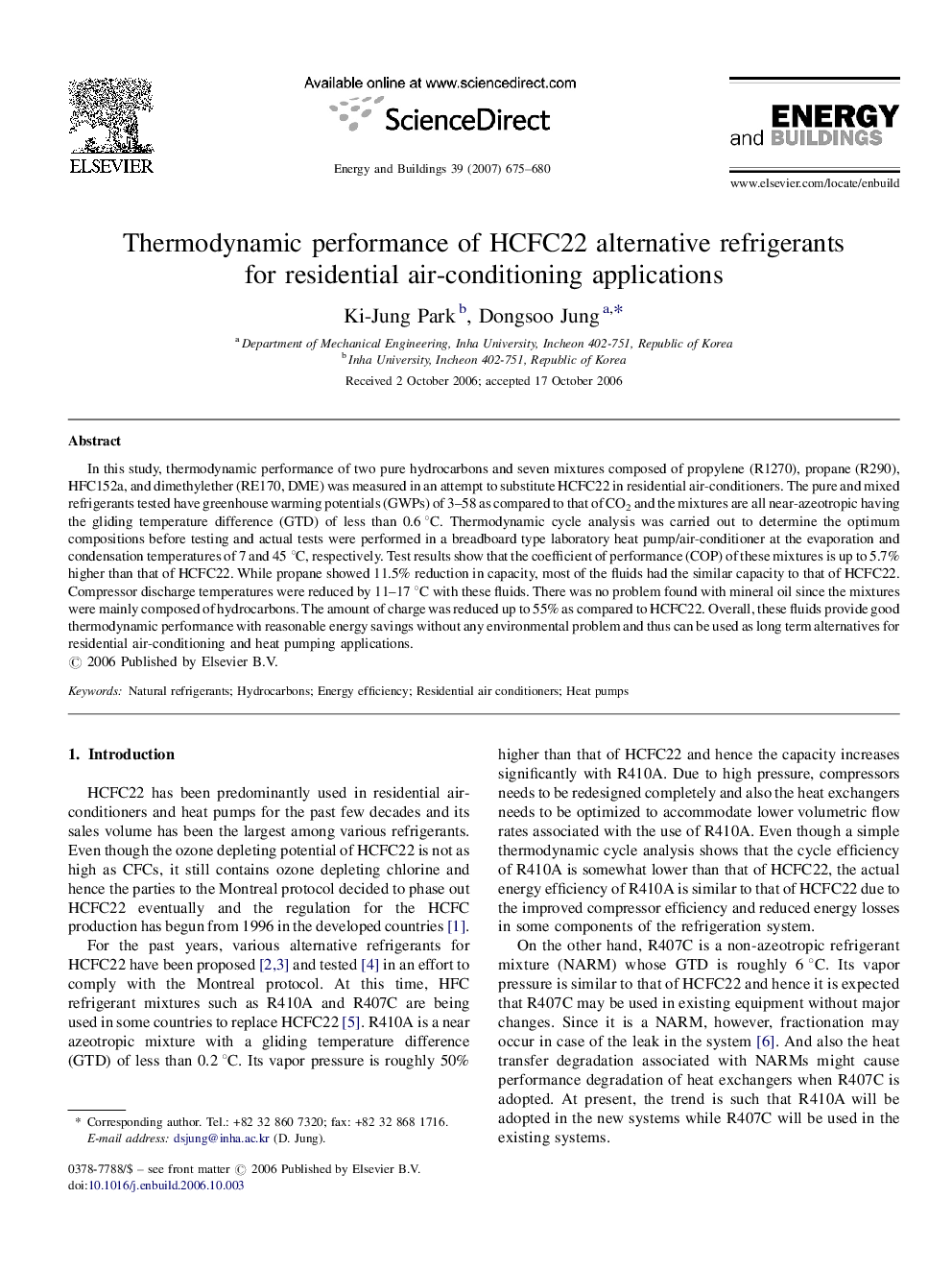| Article ID | Journal | Published Year | Pages | File Type |
|---|---|---|---|---|
| 265378 | Energy and Buildings | 2007 | 6 Pages |
In this study, thermodynamic performance of two pure hydrocarbons and seven mixtures composed of propylene (R1270), propane (R290), HFC152a, and dimethylether (RE170, DME) was measured in an attempt to substitute HCFC22 in residential air-conditioners. The pure and mixed refrigerants tested have greenhouse warming potentials (GWPs) of 3–58 as compared to that of CO2 and the mixtures are all near-azeotropic having the gliding temperature difference (GTD) of less than 0.6 °C. Thermodynamic cycle analysis was carried out to determine the optimum compositions before testing and actual tests were performed in a breadboard type laboratory heat pump/air-conditioner at the evaporation and condensation temperatures of 7 and 45 °C, respectively. Test results show that the coefficient of performance (COP) of these mixtures is up to 5.7% higher than that of HCFC22. While propane showed 11.5% reduction in capacity, most of the fluids had the similar capacity to that of HCFC22. Compressor discharge temperatures were reduced by 11–17 °C with these fluids. There was no problem found with mineral oil since the mixtures were mainly composed of hydrocarbons. The amount of charge was reduced up to 55% as compared to HCFC22. Overall, these fluids provide good thermodynamic performance with reasonable energy savings without any environmental problem and thus can be used as long term alternatives for residential air-conditioning and heat pumping applications.
